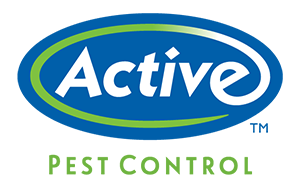Springtime in Georgia! Warm weather, sunshine, and… swarms of insects. The warmth and humidity in spring in Georgia draws many species of insects out of their winter habitats to feed and breed. 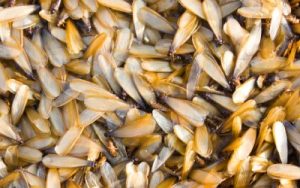 Many of these insects are just a nuisance but some of them can be dangerous to people or harmful to property. Learn which insects to watch out for, what you can do to protect your home, and how Active Pest Control can help if these precautions aren’t enough.
Many of these insects are just a nuisance but some of them can be dangerous to people or harmful to property. Learn which insects to watch out for, what you can do to protect your home, and how Active Pest Control can help if these precautions aren’t enough.
What Insects Swarm in the Spring?
Many bugs are known to swarm in spring but these are some of the most common or problematic swarming bugs in Georgia:
Bees: If bees are swarming on your property, they’re likely seeking food and shelter. Watch for the construction of bees’ nests in trees or on the eaves of your home. Carpenter bees can be especially concerning. They’re large, solitary bees that are often seen hovering near wooden structures in spring. They are important pollinators but can cause damage to wooden structures. They drill holes in wood to make their nests, which is how they get their name.
Termites: Termites begin swarming in the early spring months to establish new colonies. When termites are mating, you’ll typically find wings on the ground because termites shed their wings when they mate. If mating is happening on your property, then you are at risk of a termite infestation if you don’t already have one. Winged ants appear in late spring for the same reason as termites – to breed. They look similar to termites but don’t pose the threat to your property that wood-eating termites do.
Wasps: In the warmer months, the queen will come out of hibernation and begin looking for food. If you see wasps flying low to the ground in your yard, they are likely looking for grubs, larvae, or insects for the queen or her offspring.
Ladybugs: Ladybugs are a type of beetle that is often seen in large numbers in spring. They are beneficial insects that help control aphids and other garden pests.
Lovebugs: Lovebugs are a type of fly known for their distinctive mating swarms. They are typically found in the southeastern US, including Georgia.
Moths: Several species of moths, including the white-lined sphinx moth, are known to swarm in Georgia in the springtime.
Stinkbugs: Stinkbugs are common in Georgia and can be seen swarming in spring. While they are not harmful to humans, they can be a nuisance in large numbers.
How to Keep Swarming Insects Away
Take care with food and drink outside
When the weather heats up, so do our grills! Bees and especially wasps are attracted to protein-rich foods like the meat you or your neighbors will be cooking. They’re also attracted to sugary drinks. To keep bees and wasps from making an uninvited appearance at your picnic or BBQ, be sure to seal up leftovers promptly and keep any sugary drinks sealed or covered.
Keep your yard clean
To keep insects away, you’ll want to keep your yard clear of any kind of debris that could be a habitat for insects, including leaves, sticks and any fruit that may fall from fruit trees. Keeping your lawn mowed short can also help. Stack firewood, ideally off the ground, away from buildings, and covered by a tarp.
Stop water from pooling
Many different types of pests are attracted to water, either for breeding or for drinking. There are many items in our yards that can easily fill with water given how stormy spring in Georgia can be. Whether it’s a birdbath, an empty bucket, a flower pot or a trash can lid, try to prevent water from accumulating in any objects on your property.
Expert Pest Control for Georgia
At Active Pest Control we provide comprehensive pest control services to help keep insects away from your home in the spring and all year round. If you’re not able to enjoy your outdoor space because of swarming insects, we can help. We’ve been exterminating pests in Georgia for over 45 years. Contact us today for your free quote.

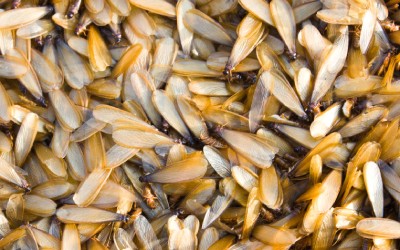
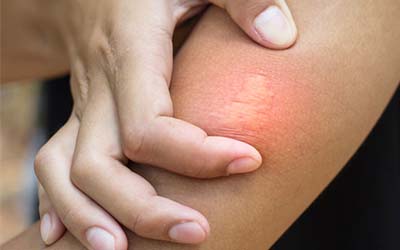
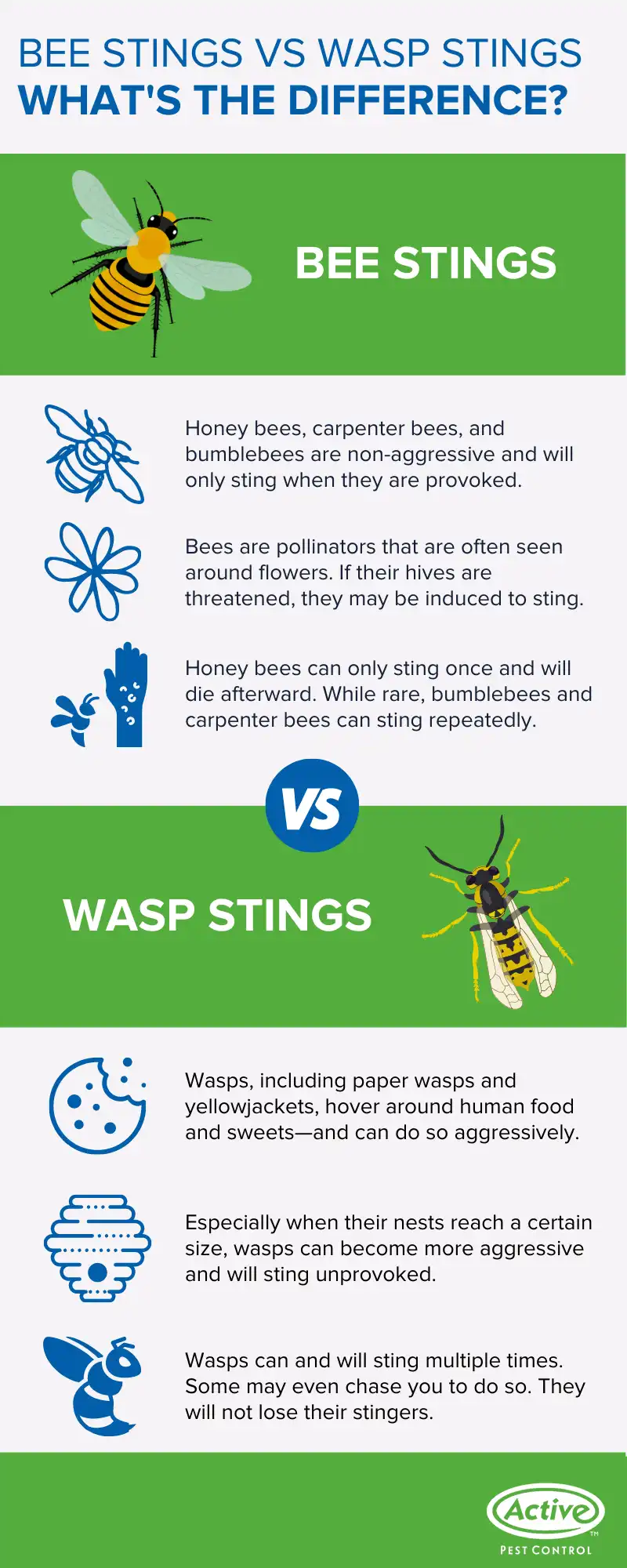
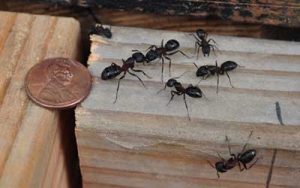 Have you noticed that pests start to get worse here in Atlanta as spring temperatures warm up? Wasps and bees begin to buzz around, winged insects crawl on your exterior walls, and you start to notice the dreaded ants crawling along your floorboards. Springtime is pest time nationwide. This time of the year is when many pests that were less active in the winter months begin to come out of dormancy. The reason why pest problems become so common in the spring, however, is because many of the pests were already lying in wait in the winter—right inside your home.
Have you noticed that pests start to get worse here in Atlanta as spring temperatures warm up? Wasps and bees begin to buzz around, winged insects crawl on your exterior walls, and you start to notice the dreaded ants crawling along your floorboards. Springtime is pest time nationwide. This time of the year is when many pests that were less active in the winter months begin to come out of dormancy. The reason why pest problems become so common in the spring, however, is because many of the pests were already lying in wait in the winter—right inside your home.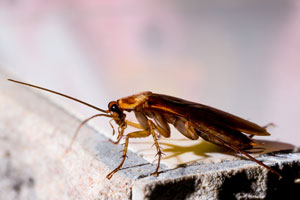 Springtime in Georgia is beloved, but seasonal allergies can be a serious pain. Millions of people suffer from stuffy noses and itchy eyes every year. However, what if it’s more than the trees and blooms causing your flare-ups? Believe it or not, pest allergens are a major trigger for allergies and asthma. Some types of pests, including roaches and dust mites, can be troublesome for people with allergies. May is National Allergy and Asthma Awareness Month! The team here at Active Pest Control is committed to keeping our customers safe from all dangers of pests–allergies included. Read on to learn our top tips for preventing pest allergens in your home.
Springtime in Georgia is beloved, but seasonal allergies can be a serious pain. Millions of people suffer from stuffy noses and itchy eyes every year. However, what if it’s more than the trees and blooms causing your flare-ups? Believe it or not, pest allergens are a major trigger for allergies and asthma. Some types of pests, including roaches and dust mites, can be troublesome for people with allergies. May is National Allergy and Asthma Awareness Month! The team here at Active Pest Control is committed to keeping our customers safe from all dangers of pests–allergies included. Read on to learn our top tips for preventing pest allergens in your home. Spring is almost here, which means pests are on their way! While pest problems are a fact of life in Georgia year-round, springtime sees a big fluctuation in pest problems. This is because many pests that are less active throughout the winter are encouraged by warming temperatures to start invading homes again. To keep spring pests out of your property, it’s important to prepare your home now! Keep reading for tips from the experts at Active Pest Control.
Spring is almost here, which means pests are on their way! While pest problems are a fact of life in Georgia year-round, springtime sees a big fluctuation in pest problems. This is because many pests that are less active throughout the winter are encouraged by warming temperatures to start invading homes again. To keep spring pests out of your property, it’s important to prepare your home now! Keep reading for tips from the experts at Active Pest Control.